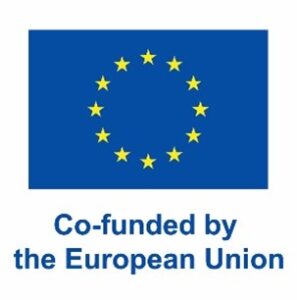The project “WE-PODs” aims to combat gender inequality, specifically the underrepresentation of women in the media. The overall goal of the “WE-PODs” program is to amplify women’s voices in public dialogue, focusing on the thematic axes of European Union values. It will train women in the use of a new form of expression – podcasts – to share their views, thereby enhancing democracy and pluralism in the media. The podcasts will revolve thematically around the axes of respect, promotion of dignity, freedom, democracy, equality, the rule of law, and human rights. Women involved in the podcasts will share their views, stories and experiences around these themes.
Target groups:
- Women aged 18+ across Cyprus, from various socio-economic backgrounds and geographical areas within Cyprus, including migrant women, women from rural areas and people belonging to the LGBTI community
- Small women’s organisations and organisations in remote and rural areas\
- The general public
Activities:
- Organisation of two training sessions (one online and one face-to face), aimed at empowering women through the production of their own podcasts, with a total of 47 participants.
- Production and launch of a series of thirty (30) podcasts titled “WE-PODS: Podcasts for Equality”. The podcasts emphasized diversity and inclusion and featured women from the civil society, members of the LGBTQI community, migrant women, women of different ages, as well as women living and working in rural or remote areas.
- Dissemination of the podcast series through the organisation’s social media platforms, complemented by a strategic partnership with a national media channel. Overall, the project’s dissemination activities reached a total of 34,539 individuals.
- Creation of an online publication titled “WE-PODs: Women Who Inspire”.
- Organisation of two public discussions aimed at raising awareness about EU values and rights. Emphasis was placed on highlighting the contribution of women in promoting EU values within public discourse. A total of forty-seven (47) participants attended the public discussions.

Funded by the European Union. Views and opinions expressed are however those of the author(s) only and do not necessarily reflect those of the European Union or the European Education and Culture Executive Agency. Neither the European Union nor the granting authority can be held responsible for them.
